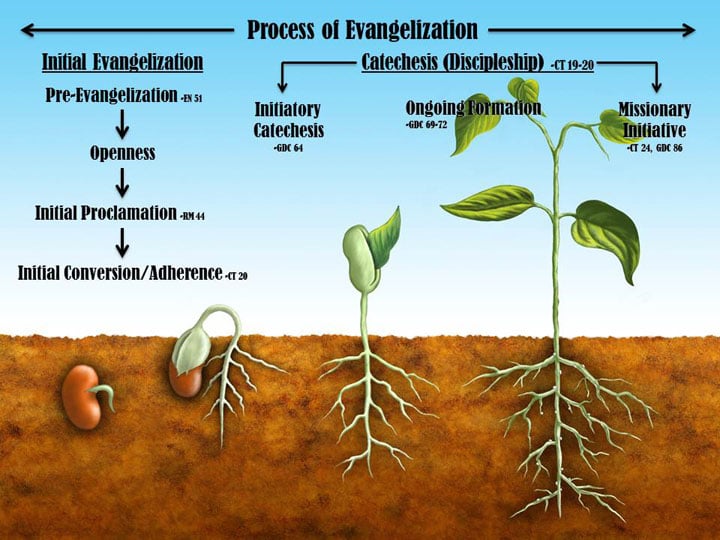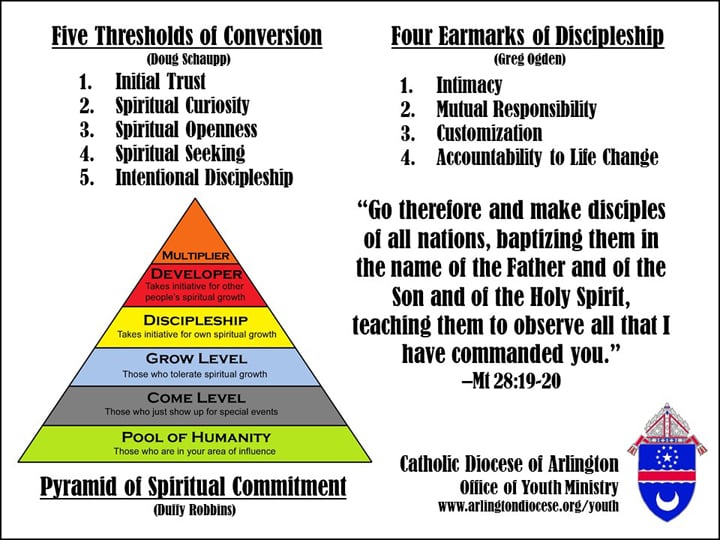
Abounding in Hope
May the God of hope fill you with all joy and peace in believing, so that you may abound in hope by the power of the Holy Spirit. —Romans 15:13
“Abounding in Hope!”, the theme which Bishop Burbidge proclaimed as the 2024-2025 year of ministry, is designed to help each of us embrace hope in our lives. Hope, not in the sense of wishful thinking; rather, hope in the eternal joy and peace that unity in Christ offers us, the hope for which Jesus has gone as a forerunner on our behalf, and the hope that “is the sure and steadfast anchor of the soul.” (CCC 1820)
Pope Francis wrote in Christus Vivit that “at times, the hurt felt by some young people is heart-rending, a pain too deep for words.” (CV, 77) Yet, he goes on to explain, “If you are young in years, but feel weak, weary or disillusioned, ask Jesus to renew you. With him, hope never fails.” (CV, 109)
Hope is not wishful thinking… “gee, wouldn’t it be nice…” Christ is our hope! We believe in Christ, and consequently we have hope. Even in times of darkness-or especially in times of darkness-hope is abundant if we know where to look. We find hope in a relationship with Jesus, in each other, in the young Church, in prayer, in charity, and in so many things that are true, beautiful, and good. When we are Abounding in Hope!, Jesus is there!
It is no coincidence that hope and the fruits of the Holy Spirit are discussed in the Catechism’s chapter on the “Dignity of the Human Person.” They are inextricably linked. Like the other theological virtues of faith and charity, hope is nothing that we’ve earned through our own effort, rather a gift that helps to form the foundation of Christian moral activity. Upon that foundation, the Holy Spirit forms in us the “first fruits of eternal glory”: charity, joy, peace, patience, kindness, goodness, generosity, gentleness, faithfulness, modesty, self-control, and chastity. (CCC 1832)
If the Holy Spirit forms these fruits in us, or perfections as the Catechism also calls them, what role do we play? We are called to cultivate them, to share them with others—to share hope with others in concrete actions. When both young and old ask: “What can I do to make a difference?”, the twelve fruits of the Holy Spirit provide a roadmap to foster His hope and His change in the world. We must cultivate them in our hearts, so that they may be ever-present in our habits of word and action. It will take work! As the Catechism reminds us, “Virtue is a habitual and firm disposition to do the good…” (CCC 1803)
Our logo depicts a dove, the Holy Spirit, delivering an olive branch, a symbol of peace. On that olive branch are twelve leaves which symbolize both hope in Him who is peace and the twelve fruits of the Holy Spirit. With the grace of the Holy Spirit, these fruits help us to find “the good” appealing, to care for those who are sick or suffering, to enhance and rebuild whatever might be broken in our society, to be vigilant about our natural world, and to bring ourselves closer to the person Christ is calling us to be.
Encourage all those you encounter this year-especially the young Church-to develop habits and to engage in concrete actions centered around cultivating the fruits of the Holy Spirit. In so doing, help others to see the world for what it is: a world which embraces more than wishful thinking, a world in which each of us may be Abounding in Hope!
Use of the annual theme in your ministry is encouraged! If you would like high resolution theme images for your ministry, please contact us at [email protected].
Post Card Resource
“It is impossible to grasp the concept of evangelization unless one tries to keep in view all its essential elements.” – EN 17
In order to assist you with understanding the Church’s language about the process of evangelization as well as contemporary verbiage we have provided a post card with what we hope will be some helpful visuals. Special thanks to the Diocese of Sioux Falls for the idea. See below for details.
front of card
This graphic illustrates the process of evangelization as described in ecclesial documents. We have also provided you with references to these documents that will help explain the individual steps in greater detail.
EN – Evangelii Nuntiandi – Paul VI
RM – Redemptoris Missio – John Paul II
CT – Catechesi Tradendae – John Paul II
GDC – General Directory for Catechesis – Congregation for Clergy
back of card
The Five Thresholds of Conversion are the five steps that every person goes through on the path to discipleship as Sherry Weddell describes in her popular book, Forming Intentional Disciples. These steps are based on Doug Schaupp’s work in evangelization at UCLA. For a very informative description of these five steps please watch this short video by Fr. Robert Barron.
The Pyramid of Spiritual Commitment: Duffy Robins describes a typical youth ministry program as a “mixed bag of kids whose commitments are all over the place.” The Pyramid of Spiritual Commitment provides an illustration of this point. In his book Building a Youth Ministry that Builds Disciples he details what all of these spiritual commitments look like and later helps the reader understand what they can do to help teens move forward in their spiritual commitments.
The Four Earmarks of Discipleship are described in an article by Greg Ogden entitled, Making Disciples Jesus’ Way: A Few at a Time. In this article he discusses his observations on the necessary components for building true and lasting disciples. In this article he asserts that disciples are made in relationship, not programs. He goes on to outline four earmarks or hallmarks of how a disciple relationship differs from a program. We especially like that he outlines a way to do this most effectively in small groups and not in a one-on-one relationship. The full article can be downloaded here.
Downloads
If you are interested in reproducing this postcard for your youth ministry program we have provided two versions for your convenience. The first is a pdf you can download and send to a printer to print your own copies of the postcard or you can download an 8.5 x 11 version that can easily be printed at your home or office.
If you have any questions on downloading or printing this resource please contact the Office of Youth, Campus, and Young Adult Ministries at 703-841-2559.
Annual Theme History

























